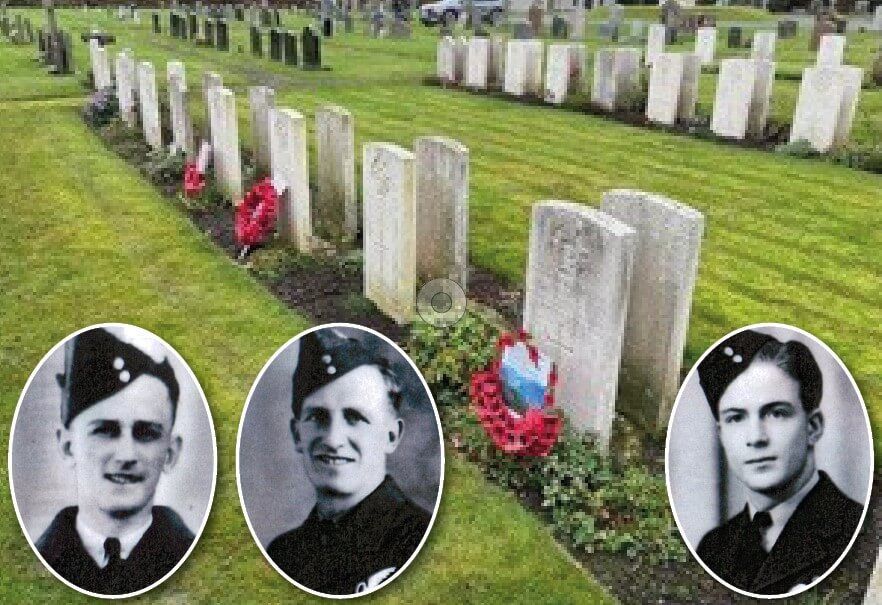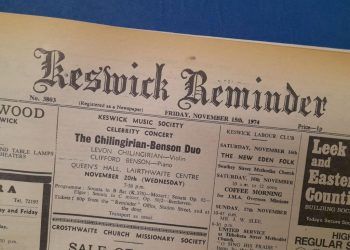
Three Canadian airmen who perished when their plane crashed on a wild and stormy night in Borrowdale were remembered earlier this week.
They were among five killed when their Vickers Wellington bomber, which was lost in bad weather above Rosthwaite on September 4, 1942, came down near Johnny Wood. The crash killed four serving Canadian airmen – one of whom is buried in a Jewish cemetery in Blackpool – and a Scotsman.
The weather that night was atrocious with one correspondent describing the weather as “rain lashing down like buckets of water thrown at window panes”.
There was already chaos in the valley as emergency services responded to a climber falling 50ft and severely breaking his leg and another man found lying in a farm passage badly injured. An ambulance that had made its way through rising floodwater also broke down and another had to be called and then came the news that a plane had crashed.
On Monday morning three residents from the valley visited the graves of three of the five who were laid to rest in Silloth Cemetery, at Causewayhead, and placed wreaths in their honour.
The three were pilot William Bruce Sage, 19, from Alberta, Canada; observer George Edward Derbyshire, 33, of Saskatchewan and wireless operator/air gunner James Anderson, 21, also of Alberta.
“I was very overwhelmed,” said Patricia Roscamp, of Grange, who has long been involved in the volunteer group helping to tell The Borrowdale Story. “The cemetery is miles from anywhere and there are 62 war graves up there. We have only three boys there killed in Borrowdale but there were dozens of Polish, Canadian, New Zealand and Australian casualties most aged 19 to 21 years of age.
“It was very humbling to see row upon row of endless war graves in this tiny little Cumbrian cemetery. It’s an important thing and I feel that when you look at the world today and see what is happening in Gaza and the Ukraine it makes you think: ‘What have we learnt?’”
Patricia was accompanied to the cemetery by Jeff Hall and Jean Thirgood.








